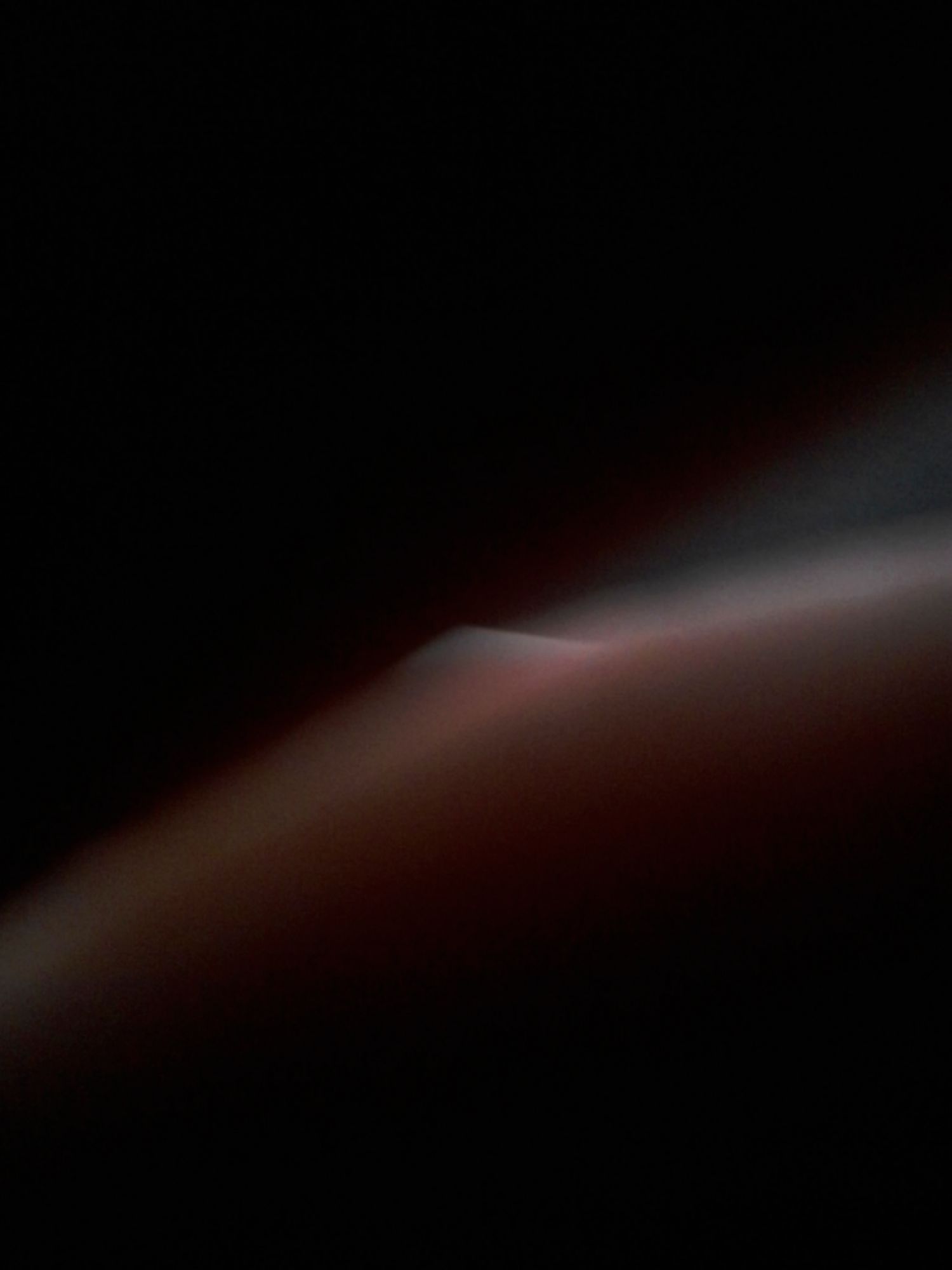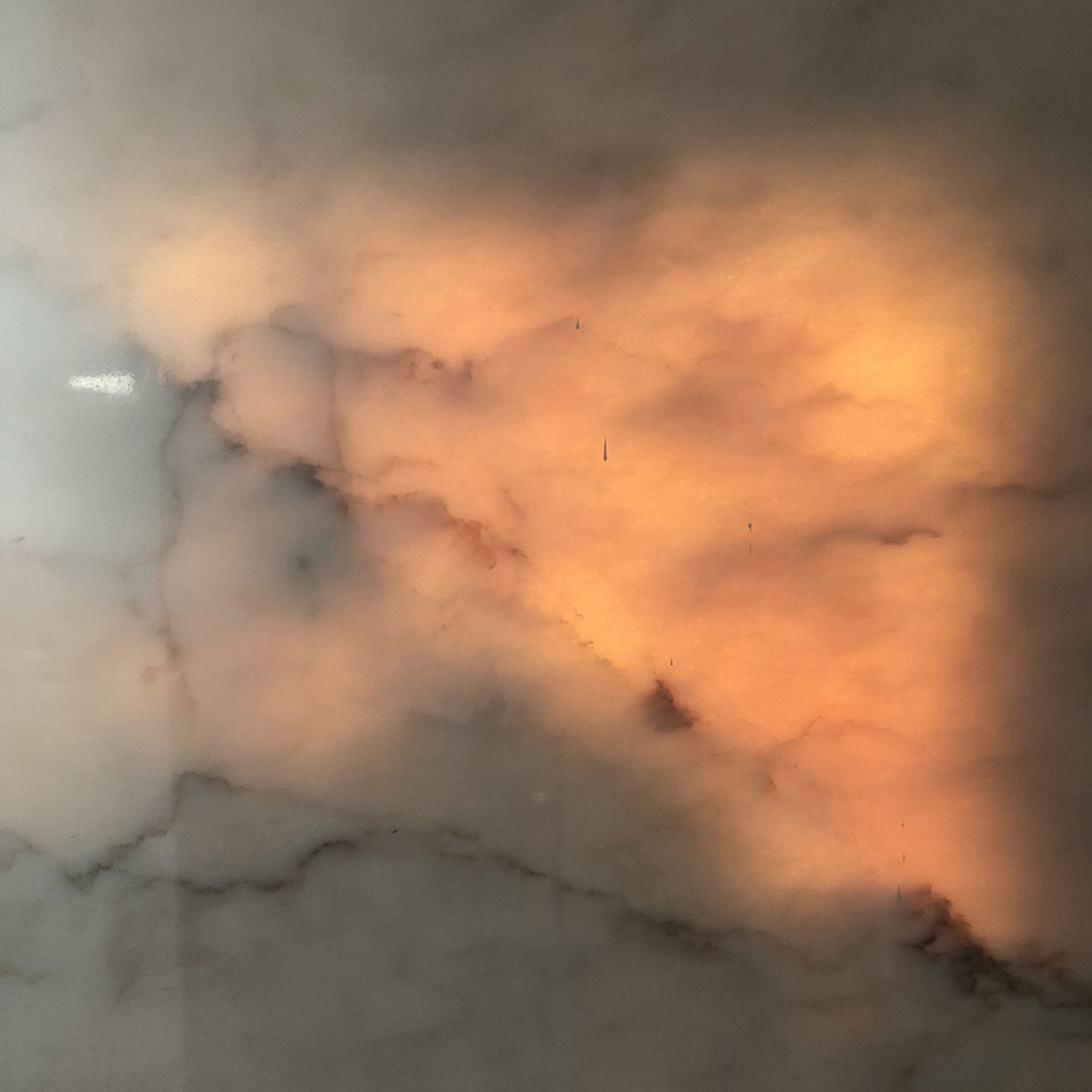E C B
MARC BEHRENS
In a particular spot in the heart of Europe, seen from a particular perspective, a small-sized black stone sphinx, looking southeast, partially blocks out the view onto the European Central Bank’s new skyscraper. She does not guard it, as one might want to say, she is merely affirmative of her own being there.
One night in December, with the noise of an ill-tempered party crowd as a backdrop, a man walks up to the sphinx, pauses just beside it in order to gaze at the nightly sky and the towering political shape of the bank, when the skyscraper all of a sudden turns pitch dark. A power failure has occurred on the block and caused a total blackout. A train passes over the bridge in front of the ECB’s skyscraper, on a different circuit maybe, louder than usually. The layer of electrical amplification is taken away from the ongoing party, the music is suddenly missing, and the partygoers’ startled voices become audible. The man beside the sphinx recalls his presence at an anti-capitalist protest march last Summer. In good spirits they had walked along the meandering park through the city centre, some of them had played music from portable speakers or from trucks parked along the itinerary, others would declaim humanist and socialist slogans. It had been an almost festive atmosphere in front of the Eurotower, the ECB’s former building.
Presently, he witnesses tense seconds of blackness, chaos, and, ultimately Dada, encompassing something hypothetically bigger than artistic attempts at it, before the skyscraper’s emergency generator kicks in, turning the lights back on, flickering a dynamic cold white from the bottom to the top floor, unsurprisingly privileging the bank’s functionality. Those seconds do not disclose anything about the actual cause and the obscure potential of the building’s blackout, nor about the general state of affairs in the European Community, while some of the partygoers, who rushed outside to wait for an earthquake, an explosion, the blackout extending even further across the city, or to already predict the morning news would announce the ECB had been sabotaged, hacked during the blackout, disabled, or even that war would be declared soon. Ambulances and fire engines race in from downtown and from across the river, but they do not stop even close to the skyscraper. They rush past, towards some other place momentarily hidden from view. The stone sphinx’s silent position remains the only certainty.
In front of the Eurotower, a few freezing nights later, on a patch of grass at a busy crossroads, a skinny woman collapses beside a black stone park bench. Various items are scattered around her, an open handbag, cans of shaving foam and hairspray, a full, just opened pack of cigarettes, a suitcase (had she come in from the railway station?) and two empty bottles of vodka. She lies beside the park bench in what appears like a foetal curl. She will freeze to death quite soon. Pedestrians: Mongols, Italians, Germans, Volkswagens, and BMWs rush by. Indifference reigns at this crossroads, which marks the entrance to an area known for its red-light district, for its drug pushers, for its growing number of sleepers on the street, at least during the past Summers, entire homeless families with prams, roasting meat on improvised barbecues on the soon grease-spotted pavement. Thus no one stops, no one really wants to know, no one wants to assume the responsibility of having to deal with any later interrogations.
The woman lies on the grass, her posture almost like Cattelan’s sculpture of the meteorite-struck John Paul II. When finally approached, she reacts, moaning, writhing slightly, not able to utter words. She wears cheap rings on most of her fingers, with tiny sparkling glass crystals, quirky designs of supermarket style cuteness cast into shiny metal, the consumerist promise of fake splendour, of fairy tale wealth, yet she is on the ground, here where remnants of rat urine, fragments of street quality drugs blended with insecticides could seep in into the epidermis of her bare hands, earlobes or cheeks, that touch the frozen grass with a feeble rest of body heat. Someone manages to prop her up. Hunched, against his knees. She gesticulates with her arms, then convulses and starts to cough. What sounds like spitting out all that is inside her, the organs, the bit of air that is in her lung, a percentage of the transformed vodka, her return ticket, her hopes and desires, all that only produces tiny droplets of black blood. Intoxicated, more on subconscious command, she rocks from side to side, scratching the hands that try to secure her with sharp-edged rings, a convergence of disease and splendour.
